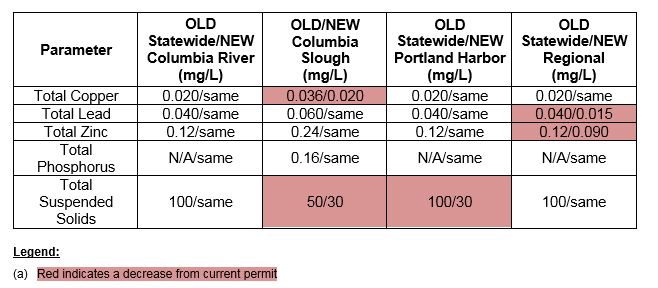The Oregon Department of Environmental Quality (DEQ) has issued the final 1200-Z industrial stormwater general permit, which became effective 1 August 2017. DEQ received over 500 comments on the draft permit from over 50 commenters. DEQ prepared a response to comments letter that identified and individually addressed each comment.
Comment responses were grouped into pertinent permit categories, including, but not limited to, antidegradation, backsliding, benchmarks, employee education, impairment pollutants, inspection and monitoring requirements, sheet flow discharge regulation, Schedule D definitions, Stormwater Pollution Control Plan (SWPCP) and corrective action requirements. Comments generally expressed the need to clarify legal issues and technical requirements and for reasonableness and consistency within the permit language.
The issuance of the final permit allows permittees to move forward from a previously “frozen” state of administrative permit extension, especially those permittees still holding individual permits based on older permits (e.g., the 1200-COLS), to a state of known permit expectations. Permittees are now able to revise individual permits and update SWPCPs to address the final 1200-Z permit requirements.
Final Stormwater Benchmarks
As identified in our two previous stormwater blog posts (here and here), the pollutant benchmarks were a considerable and contentious part of the permit revisions, resulting in numerous comments and input on the copper, lead, and zinc modeling that is documented as part of the 1200-Z Permit Evaluation Report. The final stormwater discharge benchmarks are shown in the table below and solidify the lowered total suspended solids (TSS) benchmarks from 50 to 30 mg/L for the Columbia Slough and 100 to 30 mg/L for Portland Harbor. Notably, the total copper benchmark has also decreased for the Columbia Slough, and both the total lead and total zinc benchmarks have decreased for the Regional benchmarks. The Regional benchmarks account for four geo-regions (Cascades, Coastal, Eastern, and Willamette Valley) for which DEQ determined that the benchmarks did not vary significantly to warrant individual geo-region values.

Contact Us
If you have questions regarding the final 1200-Z permit and how it may affect your industrial operations, or if you need assistance updating your SWPCP, please email us at stormwater@kennedyjenks.com or call us at 503-423-4000.
If you are interested in more information on Kennedy Jenks, don’t forget to subscribe to our blog!

